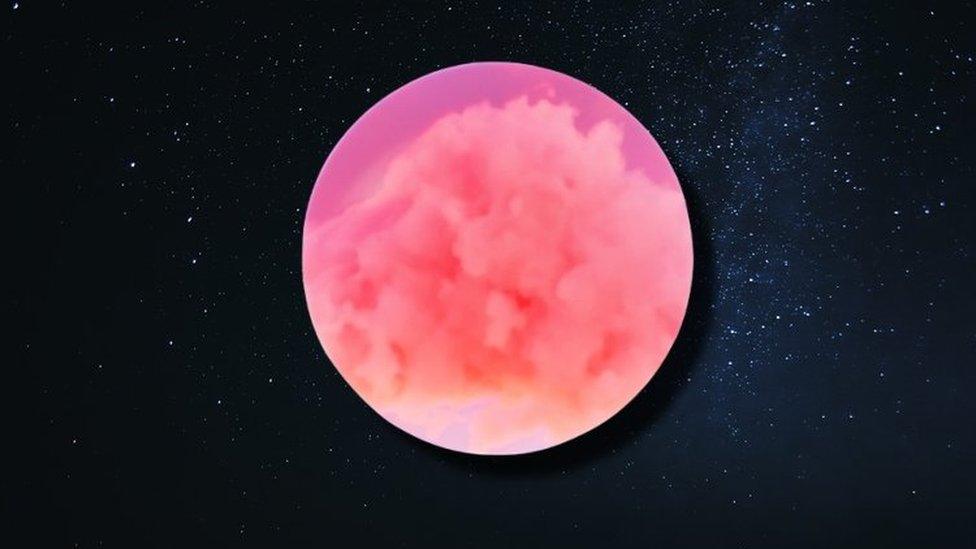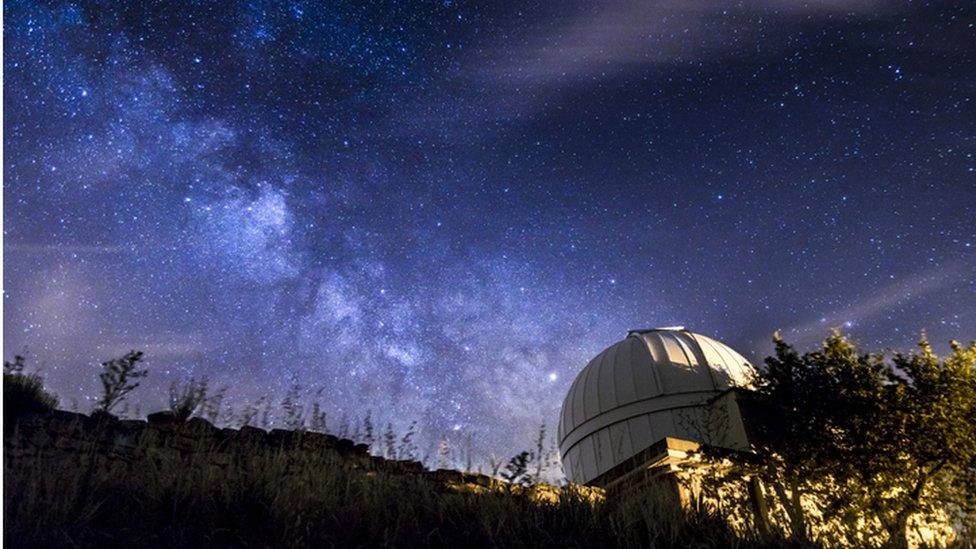WASP-193b: Scientists discover giant 'super fluffy' candy floss-like planet
- Published
- comments

Space experts have discovered a huge 'super fluffy' planet that they say is as light as candy floss.
The planet - which has been named WASP-193b - is thought to be much bigger than Jupiter, however it also has a very low density.
This is because the planet is believed to be made up of helium and hydrogen - which are the two lightest gases.
In fact, scientists think WASP-193b is the second least dense planet they've ever discovered.
What have scientists found?

The new planet was first spotted by the Wide Angle Search for Planets (WASP), a collaboration of international scientists that look for planets outside of our solar system.
They use observatories in the northern and southern hemispheres to measure the brightness of thousands of individual stars across the entire sky.
The team was able to measure the amount of light WASP-193b blocked, which gave them an estimate of the planet's size - about one and a half times the size of Jupiter.
Researchers suspect that the new planet is made mostly from hydrogen and helium - like most other gas giants in the galaxy.
Jupiter is the fifth planet from the Sun and the largest in our Solar System.
Julien de Wit, Professor at Massachusetts Institute of Technology (MIT) and co-author of the study said the reason why the planet is similar to candy floss "is because both are pretty much air".
"The planet is basically super fluffy," he added.
However, researchers are not yet sure how such a big planet can have such a low density.
"We cannot explain how this planet was formed," added Francisco Pozuelos, astronomer at the The Institute of Astrophysics of Andalusia.
He said that in order to get more answers, scientists need to look "more closely at its atmosphere".
